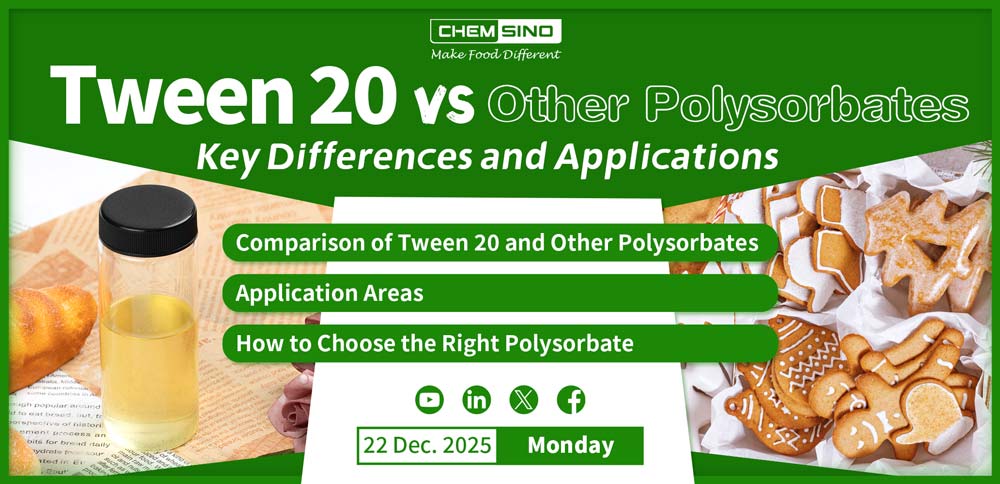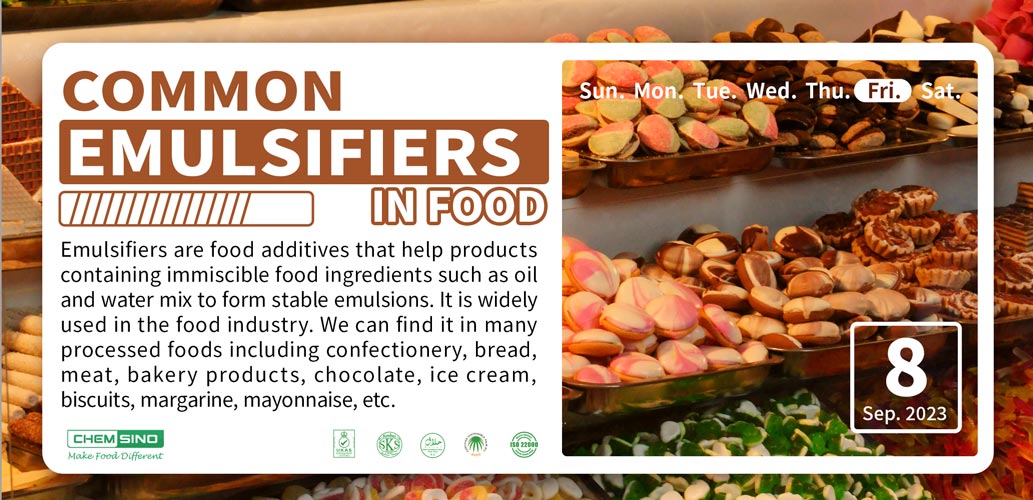Glyceryl Monolaurate (GML), commonly referred to as E471 emulsifier, is recognized for its dual functionality as an outstanding food emulsifier and a safe, broad-spectrum antimicrobial agent. Its versatile applications extend across baked goods, dairy products, meat products, and animal husbandry. E471 emulsifier significantly contributes to the emulsification and preservation aspects, ensuring both the quality and safety of a diverse range of food products.
What is Glyceryl Monolaurate?
Glyceryl Monolaurate (GML), also known as monolaurin or glycerol monolaurate, is a non-ionic surfactant characterized by its lipophilic nature. It has an HLB (Hydrophilic-Lipophilic Balance) value of 5.2 and the chemical formula C15H30O4, with the CAS number 142-18-7. This compound naturally occurs in breast milk and coconut oil.
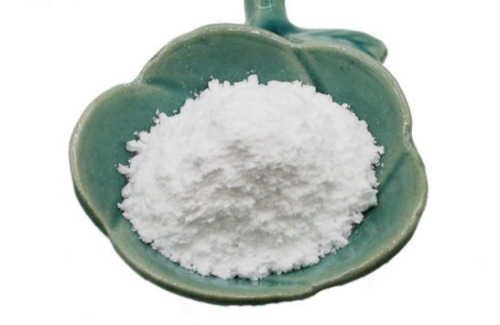
Characteristics of Glyceryl Monolaurate
# Derived from the direct esterification of lauric acid and glycerol, Glycerol Monolaurate is a compound resulting from the combination of these natural fatty acid and alcohol. E471 emulsifier exhibits superior emulsification properties and has broad-spectrum antibacterial and antiviral effects.
# When combined with other preservatives in food, Monolaurin not only reduces the usage of preservatives, thereby lowering costs, but also enhances the preservation effect through synergistic effects, extending the shelf life.
# Glycerol Monolaurate (GML) plays a dual role in the food industry, functioning as both an emulsifier and a preservative. Widely used as an emulsifier, GML food additive is incorporated into various products such as baked goods, dairy items, ice cream, pastries, steamed buns, and mooncakes. E471 emulsifier is also employed in preserving meat products, dairy items, and fruits and vegetables, significantly prolonging the shelf life of these food items.
# In the food industry, Glycerol Monolaurate is classified as a GRAS (Generally Recognized as Safe) preservative. The United States Food and Drug Administration (FDA) has affirmed its high safety profile, allowing for unlimited use in food applications.
What is Glyceryl Monolaurate Used For?
Baking Industry
Glyceryl Monolaurate, structurally similar to fats, exists in crystalline or polymorphic forms. E471 emulsifier can interact with starch to form soluble complexes, inhibiting the aging of straight-chain starch. Thus, Monolaurin is commonly employed as an emulsifier in the baking industry. Furthermore, its interaction with fats and proteins allows the formation of complexes to improve the processing performance of food. GML food additive also possesses excellent antibacterial properties, significantly inhibiting the growth and reproduction of various microorganisms and molds, thereby extending the shelf life of products.
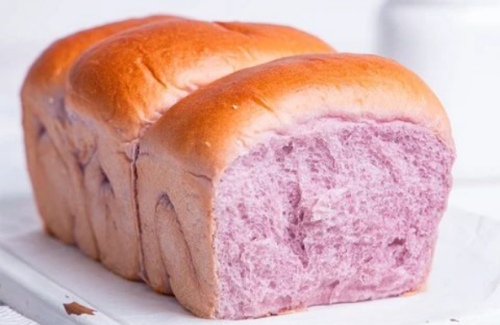
Dairy Industry
Dairy products, being nutritionally rich, are susceptible to microbial contamination, including lactic acid bacteria, yeast, and molds. The combined use of Glyceryl Monolaurate with other additives effectively suppresses the growth and reproduction of spoilage microorganisms in milk, significantly extending the shelf life and enhancing the safety of dairy products.
Research indicates that the combination of Glyceryl Monolaurate and Nisin is more effective in killing and inhibiting spores. Their combined use inhibits the growth of non-lactic acid streptococci in milk at 37 ℃, with an effect ten times stronger than each individual component.
Meat Products
In meat products, Glyceryl Monolaurate (GML) not only extends the shelf life but also improves the appearance and quality of the products, enhances palatability, and reduces the loss of moisture in fresh meat. Meat products, rich in proteins with a high moisture content, have strict storage requirements and are highly susceptible to microbial contamination, leading to product spoilage. The combination of E471 emulsifier with eugenol and sodium citrate can effectively inhibit common spoilage microorganisms in meat products, significantly prolonging the shelf life and enhancing the safety of the food. Furthermore, combining Monolaurin with lactic acid or sodium dehydroacetate contributes to the prolonged shelf life of meat products.
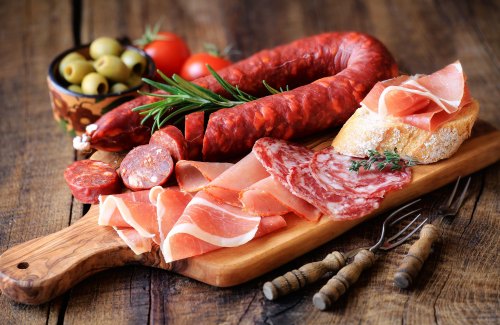
Animal Husbandry
Beyond the food sector, Glyceryl Monolaurate finds applications in animal husbandry and disease prevention. Its broad-spectrum antibacterial and antiviral physiological functions play a positive role in promoting animal growth, preventing and treating animal diseases, and more. GML E471 demonstrates significant inhibitory effects against various viruses.
Studies have shown that adding a certain amount of Glycerol Monolaurate to feed has a significant inhibitory effect on porcine reproductive and respiratory syndrome virus (PRRSV), enhancing the animals' immune response. GML E471 is also effective in preventing and treating outbreaks of piglet epidemic diarrhea, reducing the level of porcine respiratory syndrome virus (PRSV).
About CHEMSINO
Specializing in food additives, CHEMSINO takes pride in being a trusted supplier of Glyceryl Monolaurate. This essential additive serves as a key component in emulsification and preservation processes, contributing to the overall quality and safety of a diverse range of food products.
Our offerings extend globally, providing customers with GML 40% and GML 90%, as well as an array of other food additives like MPG (Food, USP, and Industrial Grade), Polysorbate in liquid and powder forms, Span series emulsifiers, and more.








 in Baking.jpg)
